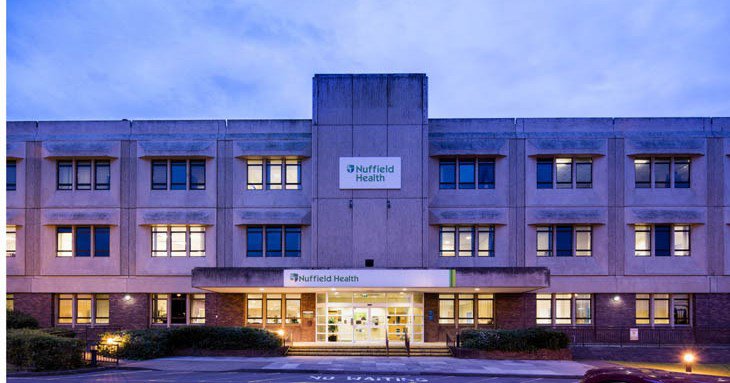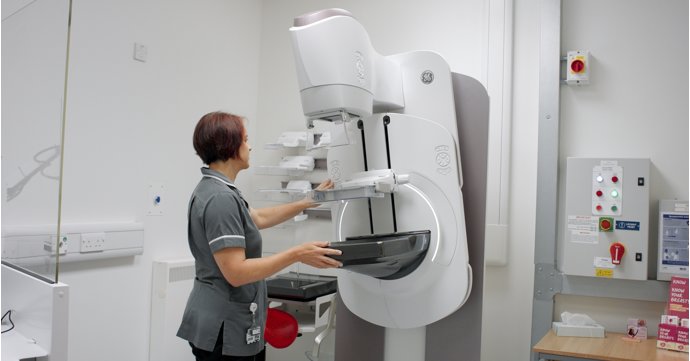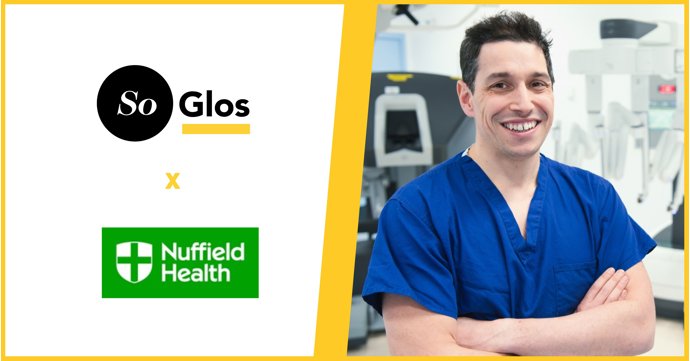With cataracts making vision more blurry over time, find out
what your options are for treating the condition and how modern techniques mean
patients can improve their eyesight at any stage when seeking private treatment.
As more people are opting for private healthcare post-pandemic, SoGlos
spoke to ophthalmologist Paul Tomlins at Nuffield Health Cheltenham
Hospital about how its consultants can
help people suffering from cataracts.
About the expert - Nuffield Health Cheltenham Hospital

Nuffield Health’s private hospital in Cheltenham promises first-class treatment with minimum waiting lists. Offering everything from health assessments to surgery in state-of-the-art clinical facilities, as well as the latest diagnostic imaging facilities, including on-site MRI and CT scanning, areas of specialty include orthopaedics, cosmetic surgery, spinal services, sports injury, ENT, gynaecology and urology.
What is a cataract?
A cataract is a clouding or haziness of the natural focssing lens inside the eye. In order to focus the image clearly, there is a natural crystalline lens inside the eye.
Over time, this lens becomes cloudy, or foggy. At the start, it might mean that your glasses prescription changes.
Later on, it will cause glare, with many people complaining that the oncoming headlights dazzle them and many find this so troublesome that they stop driving.
Finally, the vision will become blurry or smeared.
Whilst some cataracts come on quite quickly, the majority get worse over months or years. Ultimately, all cataracts will get worse over time with more blurring of the vision.
Is surgery the only option and at what stage should it be considered?
In the very early stages, a change in glasses can help, but eventually surgery becomes the only option to restore the vision.
In the old days — before I was in medical school — surgeons used to have to wait until a cataract was ‘ripe’ enough. This was because the older operations couldn’t be done on early cataracts.
With modern techniques, we can technically do the operation at any stage, even on very early cataracts.
The right time for an operation is different for each person. It is important to take the time and talk about the person’s lifestyle and their individual interests.
A professional driver might need their cataract done sooner than someone who doesn’t drive, for example, because of the glare from oncoming headlights.
A keen golfer or sportsperson might find they want cataract surgery sooner to help them see clearly in the distance.
It is absolutely vital that I can get to know my patients and understand what they need from their eyes, so that we can make the right decision about surgery, especially if we want to consider the use of special lenses.
Sadly, there is an increasing movement for cataract surgery to performed in ‘cataract factories’ with patients on a conveyor line.
As a private surgeon working at the Nuffield, I have as much time as I need to go through all the options with my patients and make the right decision.

What does the procedure involve exactly?
Cataract surgery is now the most commonly performed operation in the UK and very safe.
Cataract surgery is a microsurgical procedure using a tiny 2.8 millimetre incision into the eye, which does not require sutures.
We usually only use anaesthetic drops to numb the eye and unless the patient would prefer it, we don’t need an anaesthetic injection in most cases.
An ultrasonic probe is used to remove the cloudy and hazy lens. A foldable artificial lens is inserted through the tiny incision and unfolded inside the eye into the place where the natural lens sits.
The operation usually takes about 20 minutes.
How soon could someone with cataracts be seen by specialists at the Nuffield?
A consultation is necessary before being able to be referred for any treatment. Our ophthalmologists are usually able to fit patients into their clinics within two weeks.
How much does the surgery cost?
Cataract surgery with a standard lens is usually covered by private health insurance. If a special or premium lens implant is required, there may be additional costs, depending on the lens.
If you are paying for yourself, the cost for cataract surgery with a standard lens is approximately £2,800, but there may be additional costs for a special or premium lens.
Is the procedure uncomfortable?
The majority of patients find the procedure painless; many take the time to chat during the procedures about their pets or their supper plans… some patients even fall asleep!
What happens immediately afterwards?
Most patients do not need to wear an eye patch. The eye can be a touch scratchy for a couple of days. Patients will need drops for four to six weeks.
How quickly does the eyesight improve?
If the operation goes smoothly, eyesight is usually much better by the next day, although it can take a week or so to get the best vision.
Can cataracts come back?
Cataracts do not come back once they are removed, though about 20 per cent of people will need a minor laser procedure to clear clouding that can occur behind the artificial lens implant.
Would the patient still need to wear glasses?
This very much depends on which type of lenses are used; only the standard lens is commonly offered on the NHS.
With a standard lens implant, we choose the lens power, aiming to make the patient’s vision clear in the distance.
The standard NHS lens cannot correct for astigmatism, so if the patient has astigmatism, they will probably need glasses to correct this in the distance. A special toric lens can correct for astigmatism, meaning that these patients may not need glasses in the distance.
As we get older, our ability to focus near objects slowly deteriorates. This happens at about the age of 40, when people notice they have to hold things a bit further away to see them clearly. As this deteriorates, people need reading glasses or varifocals to see their phone or to read.
As a
standard lens cannot focus, patients will be ‘fixed’ for distance and will need
reading glasses or varifocals for reading or using a phone. As a private
surgeon I am able to offer ‘premium’ lenses such as extended depth of focus or
trifocal lenses that aren’t available on the NHS. These lenses allow the
patient to some degree of near focus meaning they can see their phone or read
without glasses.



















